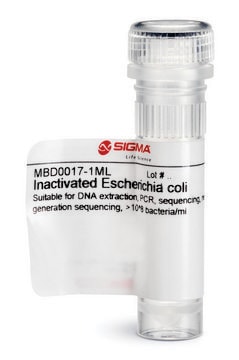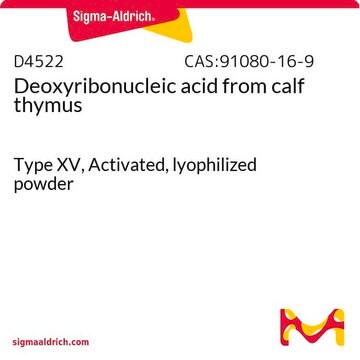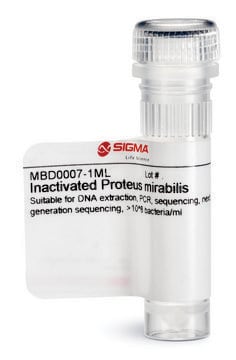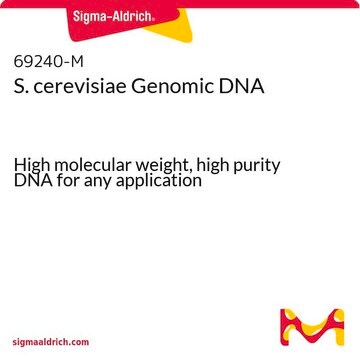MBD0013
Microbial DNA standard from Escherichia coli
Suitable for PCR, sequencing and NGS, 10 ng/μL
Synonyma:
E.Coli
About This Item
Doporučené produkty
Quality Level
form
liquid
concentration
10 ng/μL
technique(s)
DNA extraction: suitable
DNA sequencing: suitable
PCR: suitable
suitability
suitable for restriction endonuclease digests, PCR amplification, Southern blots, and sequencing reactions
shipped in
ambient
storage temp.
−20°C
General description
Read here how to use our standards to ensure data integrity for your microbiome research.
Application
Suitable for Quantitative standard for PCR, Sequencing and NGS
Features and Benefits
- Individual microbial standard for microbiomics and meta-genomics workflow
- Suitable standard for PCR, sequencing and NGS
- Improve Bioinformatics analyses
- Increases reproducibility
- Compare results lab to lab
Physical form
Other Notes
Storage Class
12 - Non Combustible Liquids
wgk_germany
WGK 1
flash_point_f
Not applicable
flash_point_c
Not applicable
Osvědčení o analýze (COA)
Vyhledejte osvědčení Osvědčení o analýze (COA) zadáním čísla šarže/dávky těchto produktů. Čísla šarže a dávky lze nalézt na štítku produktu za slovy „Lot“ nebo „Batch“.
Již tento produkt vlastníte?
Dokumenty související s produkty, které jste v minulosti zakoupili, byly za účelem usnadnění shromážděny ve vaší Knihovně dokumentů.
Zákazníci si také prohlíželi
Sortimentní položky
DNA standards enhance metagenomics research integrity, offering precise species study and mixed community standards.
Náš tým vědeckých pracovníků má zkušenosti ve všech oblastech výzkumu, včetně přírodních věd, materiálových věd, chemické syntézy, chromatografie, analytiky a mnoha dalších..
Obraťte se na technický servis.











